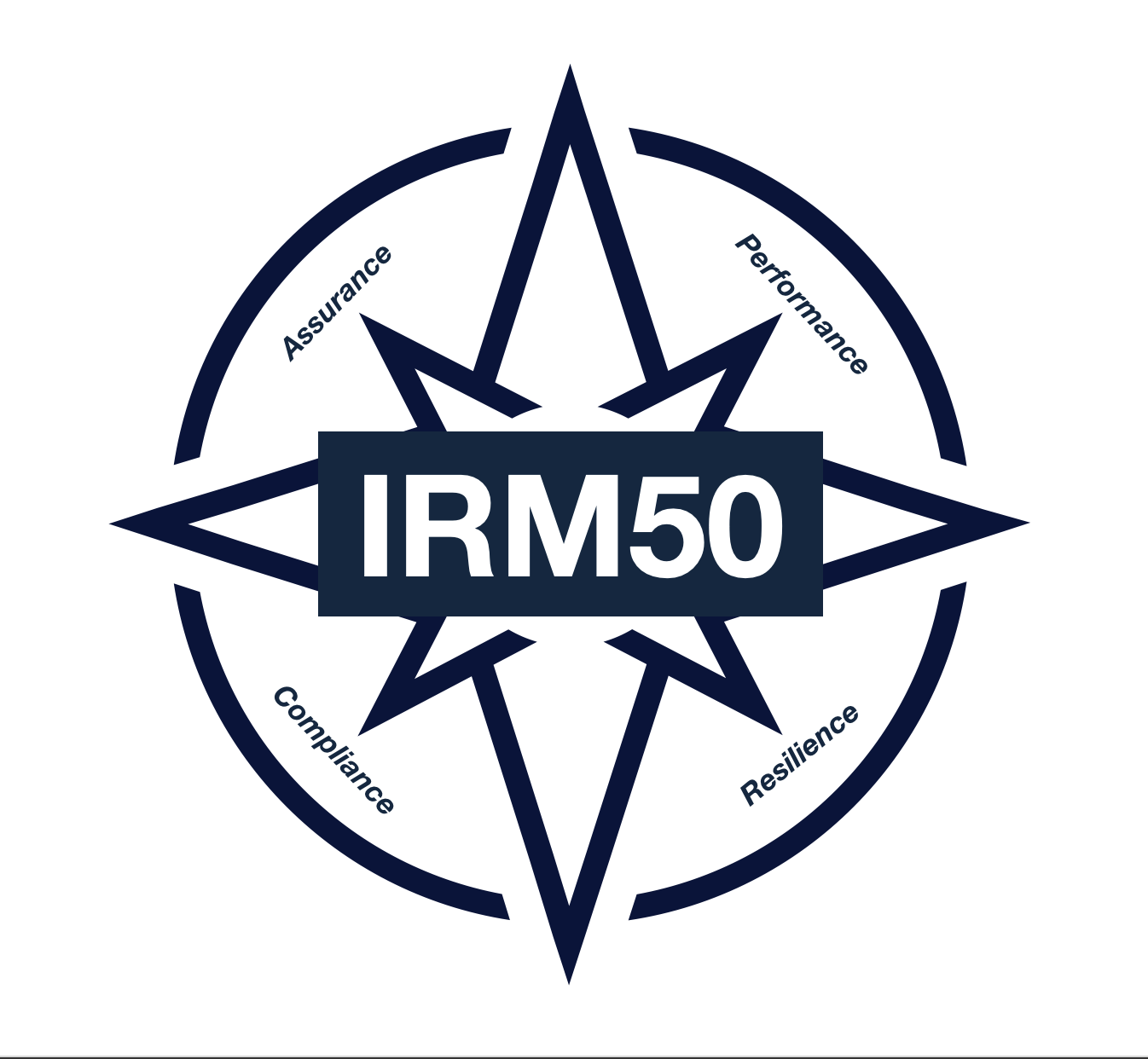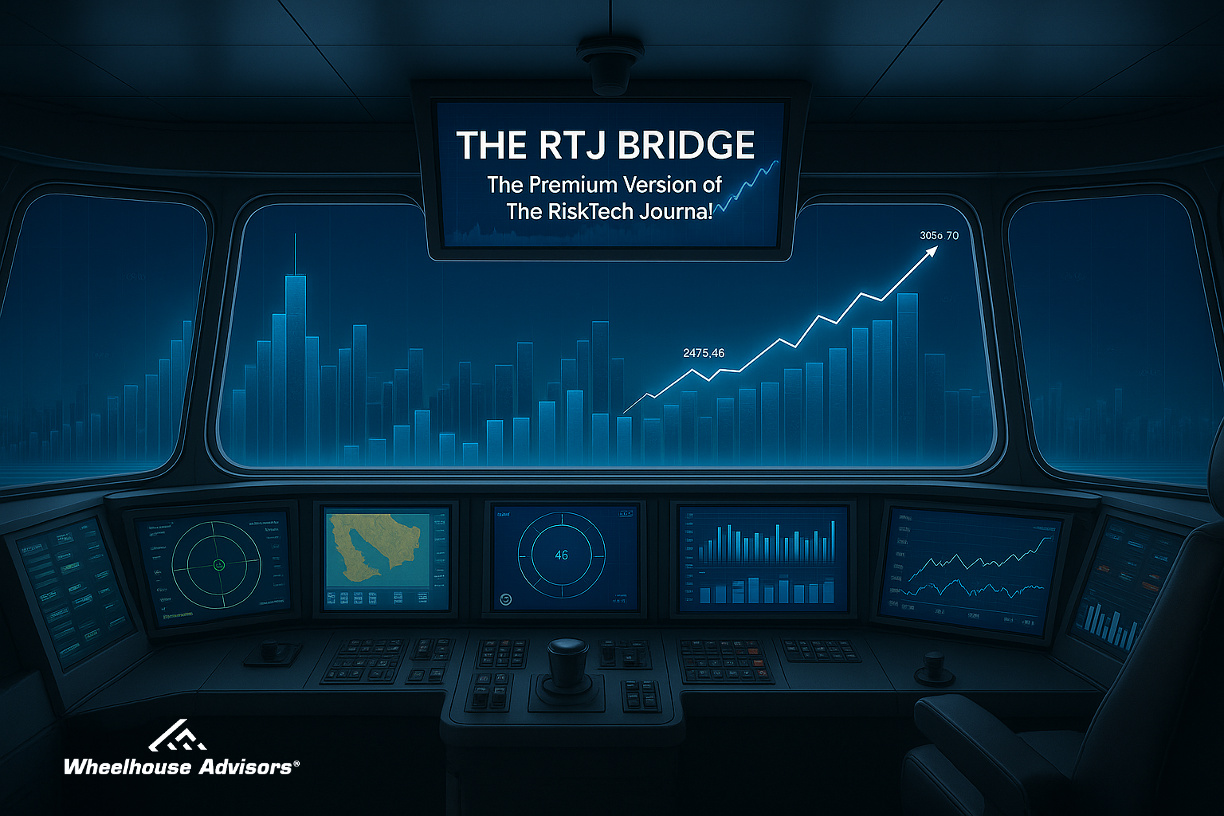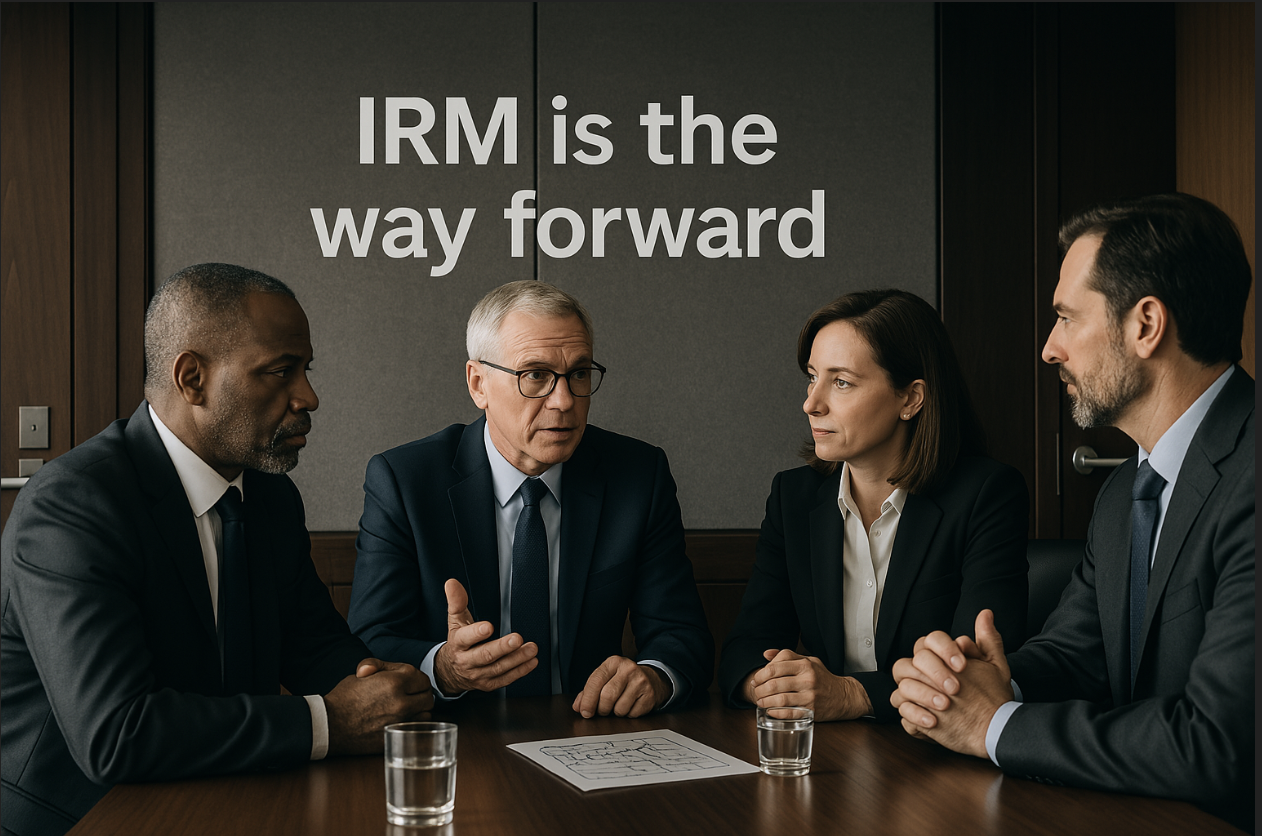
Click here to access subscription content at The RTJ Bridge - The Premium Version of The RiskTech Journal
〰️
Click here to access subscription content at The RTJ Bridge - The Premium Version of The RiskTech Journal 〰️
The RiskTech Journal
The RiskTech Journal is your premier source for insights on cutting-edge risk management technologies. We deliver expert analysis, industry trends, and practical solutions to help professionals stay ahead in an ever-changing risk landscape. Join us to explore the innovations shaping the future of risk management.

RiskTech Buyer Trap - When “Next Gen SaaS” Signals Foundation Rebuild, Not Integration Maturity
The GRC and broader RiskTech platform landscape is in a visible transition cycle. Several large vendors are rebranding portfolios, introducing AI capabilities, and emphasizing SaaS-first delivery and modern user experiences. Buyers often interpret these moves as a direct signal of near-term integration maturity, faster operational embedding, and “out of the box” IRM outcomes.
That interpretation can be costly.
The more reliable buyer lens is to recognize that platform modernization usually follows a sequenced transformation path, and integration maturity tends to become repeatable only after the new baseline stabilizes across SaaS delivery, experience, and extensibility.

The IRM Navigator™ Curve: A Faster Way to Classify Vendors and Clarify Your Risk Technology Roadmap
Most organizations still evaluate risk technology using surface features or maturity labels that do not reveal where a solution truly fits in the broader risk ecosystem. The IRM Navigator™ Curve provides a more reliable assessment. It combines the five IRM maturity levels with the four underlying investment domains to show how organizations advance from Risk Dysfunction to Risk Agency. This article introduces the curve in plain terms and provides a quick test that allows buyers to slot any vendor on the curve in less than two minutes.

GRC Without Visionaries: What the 2025 Gartner® Magic Quadrant™ Reveals About the Future of Risk
The release of the “2025 Gartner® Magic Quadrant™ for Governance, Risk and Compliance (GRC) Tools, Assurance Leaders” marks an important turning point in the evolution of enterprise risk technology. For the first time in nearly two decades of coverage, Gartner has explicitly defined the GRC category around assurance leaders rather than enterprise risk or governance audiences.
Equally significant is the visual structure of the 2025 quadrant, which contains an entirely empty Visionaries section. While some may interpret this as a sign of stagnation, it more accurately reflects a market that has entered its integration phase. The GRC segment has reached functional maturity and operational stability, creating the foundation upon which the next generation of Integrated Risk Management (IRM) and Autonomous IRM capabilities will develop.
Here, we analyze the implications of the 2025 Magic Quadrant through the lens of the IRM Navigator™ Model and the recent IRM Navigator™ Vendor Compass for Governance, Risk and Compliance (GRC) - 2025 Edition. Our research concludes that the absence of Visionaries does not indicate a failure of innovation, but rather the outcome of successful specialization. GRC has become the operational core of enterprise assurance, while IRM now defines the broader architecture of enterprise confidence and decision intelligence.

The GRC Blind Spot: What the SharePoint Cyberattack Reveals About Risk Management Vulnerabilities
This past weekend, Microsoft confirmed that attackers exploited a critical zero-day vulnerability in on-premises SharePoint servers—a breach that quickly escalated into a global cybersecurity incident. Governments, universities, energy providers, and private enterprises were affected. At least 85 servers were confirmed compromised within 48 hours, with analysts warning that tens of thousands remained at risk.

The IRM50 All-Stars Take the Field
Wheelhouse Advisors Releases 2025 Lineup on MLB's Biggest Stage
On the same day baseball's best step up to the plate at the 95th MLB All-Star Game in Atlanta, Wheelhouse Advisors has released its all-star roster: the 2025 IRM50.
And just like the Midsummer Classic, this announcement celebrates top-tier talent, position-specific excellence, and strategic versatility—only this time, the field is Integrated Risk Management (IRM), not Truist Park. Wheelhouse's IRM50 recognizes the 50 most influential technology and consulting providers driving the future of IRM. The timing isn't just symbolic—Wheelhouse Advisors is also headquartered in Atlanta, and this year's report marks the broadest, most globally representative IRM50 to date.

The Modern Risk Stack — A Primer Explaining How IRM Integrates GRC, ERM, ORM, and TRM
Many organizations seeking a better path for risk management are often confused by multiple risk domains—GRC, ERM, ORM, TRM—each promising mastery over a specific slice of risk management. But as risks evolve, multiply, and interconnect at unprecedented speed, these isolated approaches no longer suffice. Integrated Risk Management (IRM) has emerged as the essential response, weaving together the strengths of each domain to build one cohesive, strategic narrative.

McKinsey Confirms the Limits of GRC and Points Toward Integration
In its May 2025 article “Governance, Risk, and Compliance: A New Lens on Best Practices,” McKinsey & Company delivers a candid assessment of the widespread shortcomings in today’s governance, risk, and compliance (GRC) functions. Based on survey data from nearly 200 corporate leaders, the article highlights persistent underperformance across all three pillars of GRC and outlines five imperatives for reform. But what McKinsey never quite says—though it clearly suggests—is that the GRC model itself may be past its expiration date.
The findings echo what many in the risk management profession have long understood: legacy GRC frameworks are no longer adequate in a world defined by interconnected risks, real-time decisions, and strategic uncertainty. Below, we examine the key insights from the report and explain how they point—whether intentionally or not—toward Integrated Risk Management (IRM) as the future-facing alternative.

Introducing The RTJ Bridge—A Premium Subscription Delivering Strategic Insights for Risk Leaders
Wheelhouse Advisors announces the formal launch of The RTJ Bridge, the new premium subscription service from The RiskTech Journal. Positioned strategically between our daily industry commentary and comprehensive quarterly IRM Navigator™ research reports, The RTJ Bridge delivers weekly insights, executive briefings, and exclusive deep-dive editorial series.
Alongside this premium offering, the standard edition of The RiskTech Journal is now fully open-access, including unrestricted browsing of our past content library.
This tiered content strategy ensures risk leaders and senior executives receive timely and actionable insights at a fraction of the cost associated with traditional analyst firms such as Gartner and Forrester.

When Robots Walk, Risk Converges - Humanoids and the Future of Integrated Risk Management
For IRM professionals, the emergence of humanoids provides a rare moment of clarity: no single risk domain can manage this disruption in isolation. Humanoid robotics is where GRC, ERM, ORM, and TRM collide—and where their integration becomes essential.

The AI Wild West is Over — Why IRM Must Now Govern the Frontier
When John A. Wheeler and Avivah Litan collaborated as colleagues at Gartner, they shared a simple but powerful conviction: technology without governance invites risk, and risk without context invites disaster. That belief feels more urgent than ever in the age of generative AI.
This month, Avivah returned to the spotlight with a compelling Gartner webinar titled “A Partner Framework to Manage AI Governance, Trust, Risk and Security.” It laid out a comprehensive vision for AI Trust, Risk, and Security Management (AI TRiSM), exposing the vulnerabilities of current AI adoption strategies and presenting a future where organizations no longer treat AI oversight as optional.
But here’s the problem: most companies are still stuck in a fractured model of Governance, Risk, and Compliance (GRC). And the rise of autonomous, agentic AI systems is about to make that dysfunction terminal.

The Risk Ignored — Part 1: Revisiting the Origin Story of a Software Industry
Some of the biggest failures in modern risk management didn't happen because we lacked frameworks. They happened because we misunderstood risk and how it must be managed.
We've built controls. We've stood up compliance programs. We've adopted acronyms and bought technology platforms promising enterprise-wide oversight. Yet risk still slips through the cracks—not because it isn't documented, but because it isn't truly visible and understood.
I've spent 35 years helping organizations—from Fortune 100 giants to growing mid-market firms—face this reality. And the truth is this: risk management has always been more fragmented, political, and performative than most are willing to admit.
“The Risk Ignored” is a documentary-style series of articles I’ve created to give readers exclusive insights into what really happened in the last 25 years of risk management technology development.

No Manager, No Strategy—Why GRC Alone Can’t Win the Risk Game
If Governance, Risk, and Compliance (GRC) is like a team without a manager, IRM is the system that brings structure, alignment, and leadership to the field. Without a manager, even talented players operate in silos—doing what they think is best individually but without strategic coordination or shared purpose. That’s the reality in many organizations today: siloed compliance, governance, and risk functions acting without integration.
IRM provides the playbook and the leadership. It integrates GRC with Enterprise Risk Management (ERM), Operational Risk Management (ORM), and Technology Risk Management (TRM) to form a unified team—managed strategically, guided by data, and aligned around shared enterprise objectives.

The Limits of Legacy GRC — Seven Reasons It Fails Modern Risk Management
In the corridors of risk management conferences and behind closed doors at technology vendor meetings, there's a reluctant acknowledgment that few are willing to voice publicly — traditional Governance, Risk, and Compliance (GRC) platforms are struggling to meet the demands of today's dynamic risk landscape. As someone who has spent decades consulting with both GRC vendors and their customers, I've heard the whispered confessions from technology providers who recognize these limitations but fear alienating their long-standing clients by admitting them openly.

Moving Beyond the GRC Mindset - Why Boards Must Rethink Risk for the AI Era
I’m often questioned—sometimes challenged and occasionally attacked—by professionals who are deeply invested in traditional Governance, Risk, and Compliance (GRC) approaches. For many, GRC isn’t just a framework or a set of tools—it’s an identity, a career foundation, and in many cases, a commercial interest. So when I suggest that risk management must evolve beyond legacy GRC models, I’m not just raising a strategic argument—I’m challenging a belief system.
But this is not about abandoning GRC. It’s about recognizing that GRC, in its traditional, siloed, compliance-first form, is no longer sufficient for today’s risk environment.

The Myth of Internal Audit Independence: Why It’s Time to Evolve Beyond GRC Thinking
The debate over the true independence of internal audit (IA) has resurfaced with new urgency following the recent high-profile firings of multiple inspectors general (IGs). Government IGs in the United States operate in similar ways to IA in private-sector organizations. Given their similarity, these IG dismissals have sparked controversy within the IA community, with critics arguing they threaten government oversight and accountability. The situation underscores a long-standing issue: IA and IGs are not truly independent, and continuing to believe otherwise does more harm than good.
